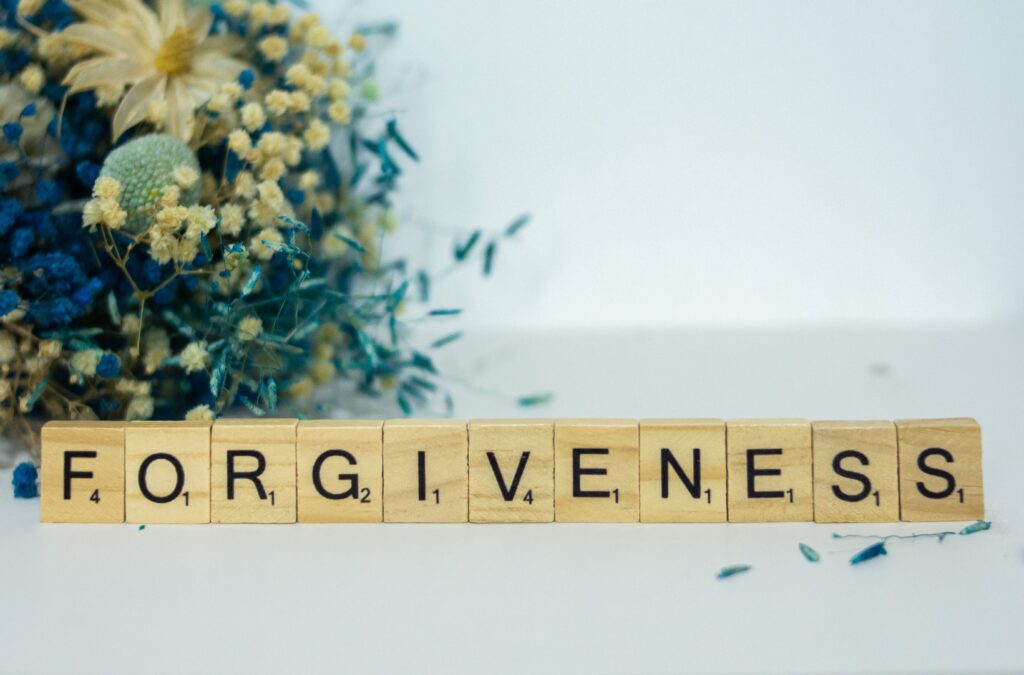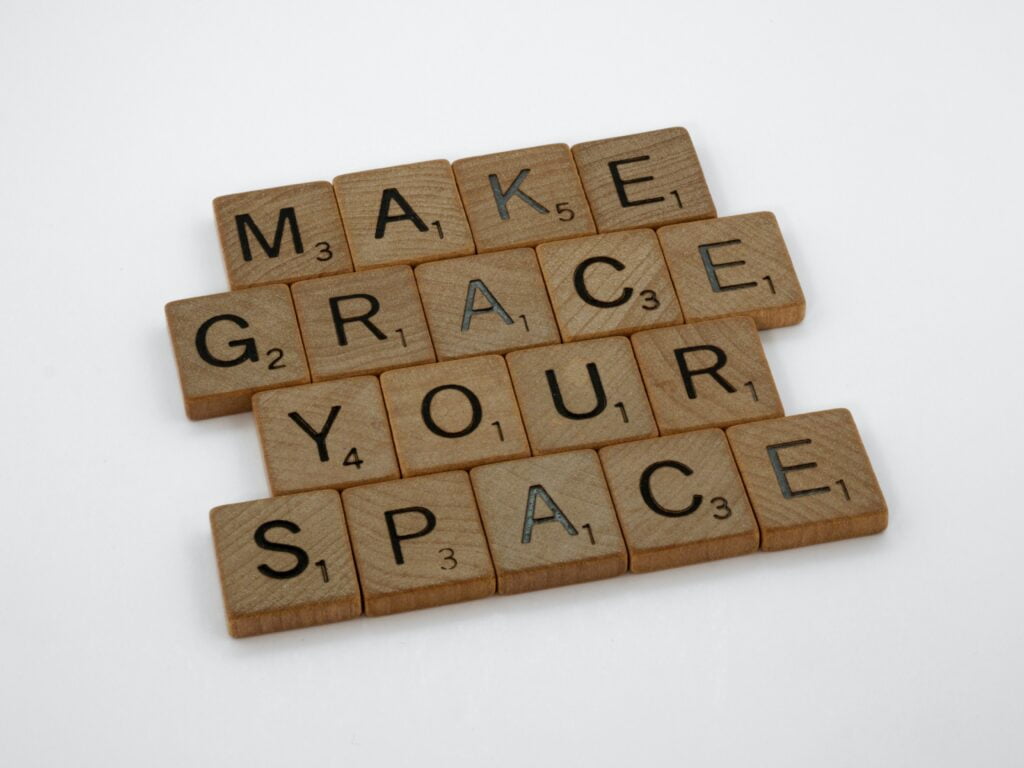The Path to Forgiveness: Healing Wounds of the Past
Welcome to a blog that uncovers the fascinating intersection between psychology and spirituality, providing insight into the human psyche and the mysteries of the universe. Join me as we embark on a journey of self-awareness, exploring mindfulness techniques, ancient spiritual traditions, and the science of meditation. In this article, we will delve deep into the transformative power of forgiveness, examining how it can help us heal emotional wounds of the past and find inner peace. Let’s embark on this path together and discover the healing potential that forgiveness holds.

The Importance of Forgiveness
Understanding the concept of forgiveness
Forgiveness is a powerful and transformative process that allows us to let go of past hurts and move forward with compassion and understanding. It involves the act of releasing resentment, anger, and the desire for revenge towards someone who has caused us pain. Forgiveness does not mean condoning or excusing the actions of others, but rather, it is a personal choice to free ourselves from the negative emotions that can hold us back from experiencing true healing and growth.
The impact of holding onto past wounds
When we hold onto past wounds and refuse to forgive, we carry the weight of those negative emotions with us. The lingering resentment and anger can consume our thoughts and energy, affecting our mental and emotional well-being. Holding onto grudges can lead to increased stress, anxiety, and even physical health problems. It can also negatively impact our relationships, as the walls we build to protect ourselves from getting hurt again can isolate us from others and prevent us from fully connecting with them.
The benefits of forgiveness for mental and emotional health
By choosing to forgive, we open ourselves up to a wealth of benefits for our mental and emotional health. Forgiveness allows us to release the burden of negative emotions, freeing up space for positive feelings such as compassion, empathy, and love. It promotes a sense of inner peace and reduces stress and anxiety. Forgiveness also helps in building resilience, as it teaches us to navigate difficult emotions and situations with grace and understanding. Additionally, forgiving others can improve our relationships and help us cultivate a deeper sense of connection and empathy towards others.
Exploring the Healing Process
Acknowledging and accepting the pain
The first step towards healing and forgiveness is acknowledging and accepting the pain that has been caused. It is important to allow ourselves to fully feel and experience the emotions that arise from the hurt. This process of acknowledging and accepting our pain creates the foundation for genuine healing and growth.
Self-reflection and introspection
Once we have acknowledged our pain, it is crucial to engage in self-reflection and introspection. This involves examining our own thoughts, feelings, and actions in relation to the situation or person we need to forgive. Self-reflection allows us to gain insight into our own vulnerabilities and triggers, helping us to better understand ourselves and our reactions.
Seeking support and guidance
Seeking support and guidance from trusted friends, family members, or professionals can play a crucial role in the healing process. Talking to others who have gone through similar experiences can provide valuable perspectives and insights. Additionally, working with a therapist or counselor can offer a safe space to explore our emotions and receive guidance on how to navigate the forgiveness process.
Letting go of resentment and anger
The final step in the healing process is letting go of resentment and anger. This involves consciously choosing to release the negative emotions and replace them with forgiveness, compassion, and empathy. Letting go does not mean forgetting or condoning the actions of others, but rather, it means freeing ourselves from the emotional burden and moving forward with a sense of peace and understanding.

The Role of Compassion and Empathy
Developing empathy towards oneself
Forgiveness requires the development of empathy towards oneself. It is important to recognize and acknowledge our own pain and suffering, and to treat ourselves with kindness and compassion. Self-empathy allows us to heal and nurture our own wounds, making it easier for us to extend empathy and forgiveness to others.
Cultivating compassion for others
Compassion is a key ingredient in the forgiveness process. By cultivating compassion for others, we can better understand their actions and motivations, and see them as flawed human beings just like ourselves. Compassion allows us to see beyond the hurtful actions and connect with the inherent goodness in others, making forgiveness a more natural and genuine response.
The connection between compassion and forgiveness
Compassion and forgiveness are deeply interconnected. When we develop compassion for ourselves and others, forgiveness becomes a natural extension of that understanding and empathy. Compassion helps us to let go of resentment and anger, and guides us towards a place of forgiveness and healing.
The Power of Self-Forgiveness
Recognizing the need for self-forgiveness
Self-forgiveness is an essential part of the forgiveness journey. It involves recognizing and acknowledging the mistakes and shortcomings within ourselves, and extending forgiveness and understanding towards ourselves. Often, we are our own harshest critics, and self-forgiveness allows us to break free from self-judgment and embrace self-compassion.
The barriers to self-forgiveness
There can be many barriers to self-forgiveness, such as guilt, shame, and a fear of repeating past mistakes. It can be difficult to let go of the negative self-perception and deeply ingrained beliefs about our own worthiness of forgiveness. However, by recognizing and addressing these barriers, we can begin to heal and move towards self-forgiveness.
Practices and techniques for self-forgiveness
There are several practices and techniques that can aid in the process of self-forgiveness. Journaling, affirmations, meditation, and therapy can all be helpful tools in exploring our feelings of self-blame and guilt, and moving towards self-forgiveness. Engaging in self-care activities and surrounding ourselves with supportive and understanding individuals can also create an environment of healing and self-compassion.

Drawing Strength from Spirituality
Spiritual teachings on forgiveness
Many spiritual traditions emphasize the importance of forgiveness as a pathway to healing and growth. Spiritual teachings often provide wisdom and guidance on how to cultivate forgiveness towards ourselves and others. These teachings can be a source of strength and inspiration as we navigate the forgiveness journey.
The role of prayer and meditation in the healing process
Prayer and meditation can play a powerful role in the healing process. They provide a means to connect with a higher power or our inner selves, allowing us to gain clarity, peace, and guidance. These practices can cultivate a sense of surrender and trust, helping us to release the burden of resentment and find inner peace through forgiveness.
Connecting with a Higher Power for guidance and support
For those who believe in a Higher Power, connecting with this source of guidance and support can be instrumental in the forgiveness process. Seeking guidance through prayer and surrendering to a higher wisdom can provide comfort and reassurance as we navigate the challenges of forgiveness. Connecting with a Higher Power can also offer a sense of purpose and meaning in the healing journey.
Psychological Approaches to Forgiveness
Cognitive-behavioral techniques for forgiveness
Cognitive-behavioral techniques can be helpful in the forgiveness process. These techniques involve identifying and challenging the negative thoughts and beliefs that contribute to our resistance to forgiveness. By replacing these negative narratives with more positive and compassionate ones, we can shift our perspective and open ourselves up to forgiveness.
Acceptance and commitment therapy
Acceptance and commitment therapy (ACT) is a therapeutic approach that can be applied to forgiveness. ACT promotes the acceptance of difficult emotions and experiences, and encourages individuals to commit to taking actions aligned with their values and goals. Through ACT, individuals can learn to accept and make room for forgiveness, even in the face of pain and hurt.
Processing and reframing past traumas
The process of forgiveness often involves deep healing of past traumas. Through therapy and other therapeutic modalities, individuals can process and reframe their past traumas in a way that allows for forgiveness and growth. This often involves identifying and releasing the emotions and beliefs tied to the trauma, and integrating new understandings and perspectives.
Healing the Body through Forgiveness
The mind-body connection in forgiveness
The mind-body connection plays a significant role in forgiveness and healing. When we hold onto anger, resentment, and other negative emotions, it can manifest in physical symptoms and ailments. By releasing these toxic emotions through forgiveness, we can promote healing and wellbeing in our physical bodies.
Physical health benefits of forgiveness
There are numerous physical health benefits associated with forgiveness. Studies have shown that forgiveness can lower blood pressure, reduce inflammation, and strengthen the immune system. By letting go of anger and resentment, we can enhance our overall physical health and well-being.
Practices for integrating forgiveness into the body
There are various practices that can help integrate forgiveness into the body. These can include movement-based practices such as yoga or tai chi, breathwork exercises, and body-awareness meditations. These practices can help release tension and stagnant energy from the body, allowing for a deeper sense of forgiveness and healing.
Navigating Relational Healing
Rebuilding trust and repairing relationships
Forgiveness is often necessary for rebuilding trust and repairing damaged relationships. It requires open and honest communication, a willingness to listen and understand the perspectives of others, and a commitment to change and growth. Rebuilding trust and repairing relationships takes time and effort, but forgiveness is an essential component of this process.
Effective communication skills in forgiveness
Effective communication skills are vital when it comes to forgiveness. It is important to be able to express our feelings and needs in a clear and compassionate manner, while also being open to listening and understanding the perspectives of others. Effective communication fosters connection, understanding, and empathy, creating a space for forgiveness to flourish.
The role of boundaries in the healing process
Boundaries are crucial in the healing process and in maintaining healthy relationships. Forgiveness does not mean tolerating harmful behavior or allowing ourselves to be mistreated. Setting and maintaining boundaries is essential for self-care, protection, and creating a sense of safety in relationships. Establishing clear boundaries helps to foster emotional wellbeing and supports the forgiveness journey.
Fostering Forgiveness in Society
Promoting forgiveness in communities and organizations
Fostering forgiveness in communities and organizations can have a profound impact on individuals and society as a whole. It involves creating spaces and programs that encourage understanding, empathy, and conflict resolution. Promoting forgiveness at a collective level can contribute to a more peaceful and compassionate society.
Restorative justice practices
Restorative justice practices offer an alternative approach to traditional punitive measures. These practices focus on repairing the harm caused, fostering accountability, and promoting healing and reconciliation. Restorative justice recognizes the importance of forgiveness and empathy in the process of healing and rebuilding relationships.
The collective impact of forgiveness on society
Forgiveness has the potential to create a ripple effect in society. When individuals choose forgiveness, it can inspire and influence others to do the same. By fostering forgiveness at a collective level, we can create a culture of empathy, compassion, and understanding, which can contribute to a more harmonious and peaceful society.
Embracing Forgiveness as a Lifelong Journey
The ongoing nature of forgiveness
Forgiveness is a lifelong journey that requires ongoing commitment and practice. It is not a one-time event, but rather a continuous process of letting go, healing, and growth. As life presents new challenges and experiences, forgiveness allows us to navigate them with grace and resilience.
Dealing with setbacks and relapses
Setbacks and relapses are a natural part of the forgiveness journey. It is important to have patience and compassion for ourselves when we stumble along the way. Learning from setbacks and using them as opportunities for growth and self-reflection can deepen our understanding of forgiveness and strengthen our commitment to the process.
Continuing growth and transformation
Forgiveness opens the door to continued growth and transformation. As we release the burdens of the past, we create space for new experiences and opportunities. With each act of forgiveness, we become more compassionate, resilient, and whole. The forgiveness journey is a lifelong commitment to personal growth and the cultivation of a more peaceful and loving world.

